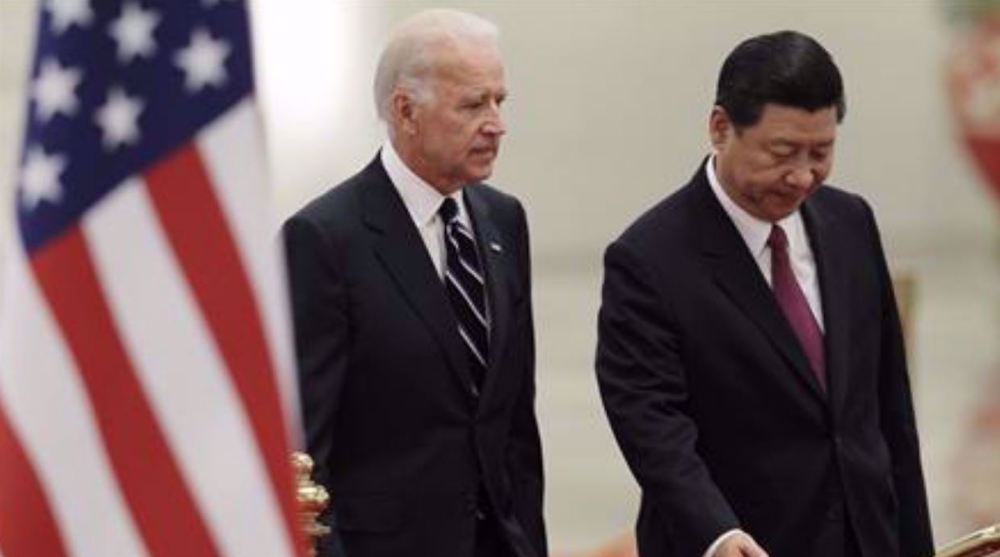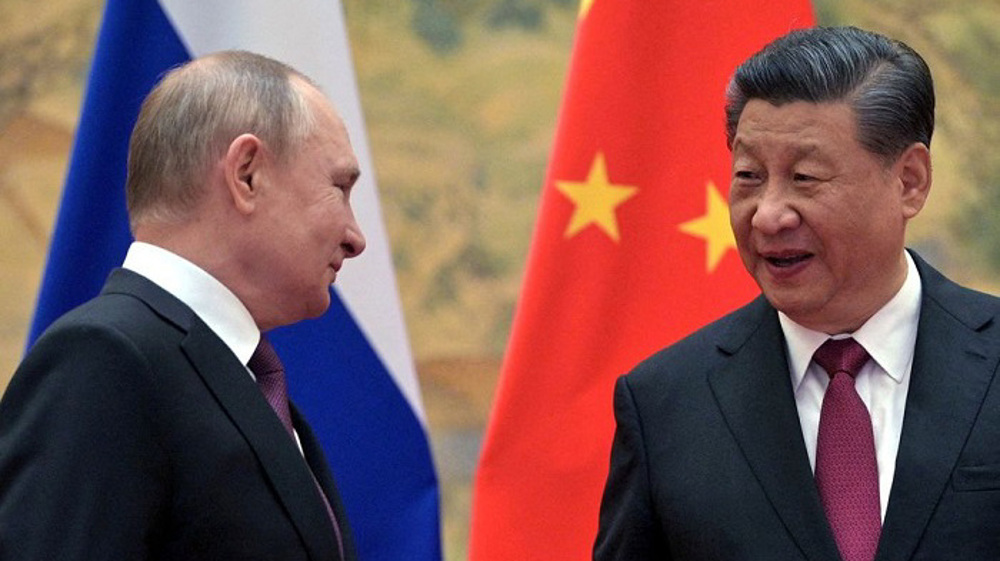Analyst: US, China relations headed to 'further deterioration'
Bilateral relationships between the United States and China have been set towards “further deterioration” as competition between the two major powers continues with no end in the sight, according to a Chinese political commentator.
Yilun Zhang, who is a Research Associate at the Institute for China-America Studies based in Washington, DC, said in an interview with Press TV on Tuesday that the Biden administration “did not, and perhaps is not capable of preventing and stopping the further deterioration” of the already strained Sino-US relations.
The aim to compete with China has dominated the minds of Washington policymakers, Zhang explained, adding that it was difficult to reverse their mindsets in the foreseeable future.
He said the two sides' efforts for trade and technology decoupling, as well as the repeatedly reemphasized security concerns in the Indo-Pacific region has laid down the fundamental tones of the competition.
Need for restoring communications
Zhang explained that both countries had reiterated their intention to manage their differences and prevent conflict, adding, however, that both countries were in a transition period, trying to figure out a new equilibrium to coexist.
He stressed that both countries needed to restore their channels of communication, warning that during a transition period, the risk was especially high. “Especially when the two countries do not have effective channels of communication to manage various issues such as security, trade, and climate change.”
Zhang said, “The rapidly evolving dynamics around the world also presents a pressing need for the two countries to restore and reinforce their communication channel.”
In this regard, Cafiero said the White House hopes to arrange an in-person meeting at the G20 summit in Bali later this month between US President Joe Biden and his Chinese counterpart Xi Jinping to "cool down the air" after things were volatile for months.
On the other hand, “Any attempt [by the Biden administration] to soften tensions with China will be criticized [by Washington policymakers] as being soft to China,“ Zhang pointed out.
Sino-West alliance vs. Sino-Russia alliance
Zhang said China's grievance towards US-led regional multilateral security alliances such as NATO, was not a new matter, and for this, he ruled out any possibilities for the creation of a China-West partnership to side with Ukraine in the war against Russia.
Instead, Zhang explained, China shared Russia's grievance that the West, led by the United States, has been increasingly seeking to impose unilateral sanctions to bash other countries, instead of creating meaningful channels for the establishment of peaceful communication.
Sino-Russia primarily reflects their shared goal to "effectively counter external interference and threats to regional security, and maintain international strategic stability", as stated in their joint statement released before the Ukraine crisis erupted into conflict in February, he said.
Xi reiterated Beijing’s position about the Ukraine conflict in his meeting with German Chancellor Schultz.
“China would never form an alliance with Russia, not to endorse or support the use of nuclear weapons,” he said. “China also made it clear that communication, not sanction or bloc-building, is the channel through which peace and stability must be restored in Ukraine.”
Iranian nation resolved to make criminals pay for blood of martyrs: Shiraz Jews
Iran slams US-Israeli attack on Tehran's 12,000-seat Azadi sports complex as war crime
Death toll from US-Israeli aggression against Iran crosses 1,200
Iran won't stop its retaliation until the aggressor is punished: Speaker Ghalibaf
Iranian armed forces deny launching drone strike toward Azerbaijan
IRGC strikes critical Israeli military sites with Khorramshahr-4 missiles in latest wave
US F-15E Strike Eagle multi-role attack fighter jet downed by IRGC air defenses
Iran won't target its neighbors, but US bases across region: FM spox














 This makes it easy to access the Press TV website
This makes it easy to access the Press TV website